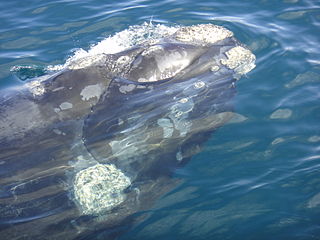If you are a fan of the majestic creatures that grace our oceans (unfortunately in declining numbers), then chances are you probably heard of the crustacean creatures that latch on to them, for a full-board free ride.
Whales are avid of plankton, and Barnacles are filter-eaters that relish on this meal. This match made in heaven seems totally logical, the whale in all its grandeur is able to carry up to 500Kgs of barnacles on its skin without batting an eyelid, the plankton in return, occasionally offers a layer of protection of some sort in times of conflict, and acts as the first line of defense for incoming blows.
Scientists define the relationship as Obligate Commensalism, neither Symbiosis where both organism benefit, neither Parasitism where one specie benefits at the expense of another.
This is mainly because the whale is rarely harmed (except by some drag and an occasional infection) and the barnacle is always taken into feeding territory by its host where it lives happily basking in its own irrelevance. It is worth mentioning that barnacles species are picky about the whale species they associate with and never cross from one specie to another (trust me I googled it).
When a barnacle is detached from a whale, it will often undergo necrosis and die, which is a key point in the analogy I am getting to.
Whales are avid of plankton, and Barnacles are filter-eaters that relish on this meal. This match made in heaven seems totally logical, the whale in all its grandeur is able to carry up to 500Kgs of barnacles on its skin without batting an eyelid, the plankton in return, occasionally offers a layer of protection of some sort in times of conflict, and acts as the first line of defense for incoming blows.
 |
| Whale Covered in Barnacles |
Scientists define the relationship as Obligate Commensalism, neither Symbiosis where both organism benefit, neither Parasitism where one specie benefits at the expense of another.
This is mainly because the whale is rarely harmed (except by some drag and an occasional infection) and the barnacle is always taken into feeding territory by its host where it lives happily basking in its own irrelevance. It is worth mentioning that barnacles species are picky about the whale species they associate with and never cross from one specie to another (trust me I googled it).
When a barnacle is detached from a whale, it will often undergo necrosis and die, which is a key point in the analogy I am getting to.
Let's say Whales are the big investors, the capital holders, the cigar-wielding, yacht-owning, panel-speaking faces we have been bombarded with day after day, under the guise of "Making Lebanon Great Again" through Entrepreneurship (yeah yeah yeah) and all the smoke and mirrors that come with this hype. If so, then those of you with trained eyes will have probably noticed the barnacles that are always stuck on the skin of those whales. The brisk-applauding, elbow-rubbing, hyper-dynamic, porte-paroling minions that always tell you what you need to do to succeed.
While human barnacles share the lack of backbone with their crustacean namesakes, they often stand-out in their unique capacity to detach from their current host and navigate spontaneously into a new one that promises to drive them into Paradise City. where the plankton is green and the sums are pretty...big.
"So what's your point?" I hear you ask already with the arrogant stance of a Lebanese who has been told that their mom's Tabbouleh is not that tasty.
I am not sure what my point is really. Perhaps I just love cetaceans and maybe I do agree with what you're thinking: "No, we cannot all be whales".
That is indeed often a unique genetically-bound situation, but you don't have to be a barnacle either!
If you think about it, after all, there are plenty of fish in the sea...
I am not sure what my point is really. Perhaps I just love cetaceans and maybe I do agree with what you're thinking: "No, we cannot all be whales".
That is indeed often a unique genetically-bound situation, but you don't have to be a barnacle either!
If you think about it, after all, there are plenty of fish in the sea...

No comments:
Post a Comment
Note: Only a member of this blog may post a comment.